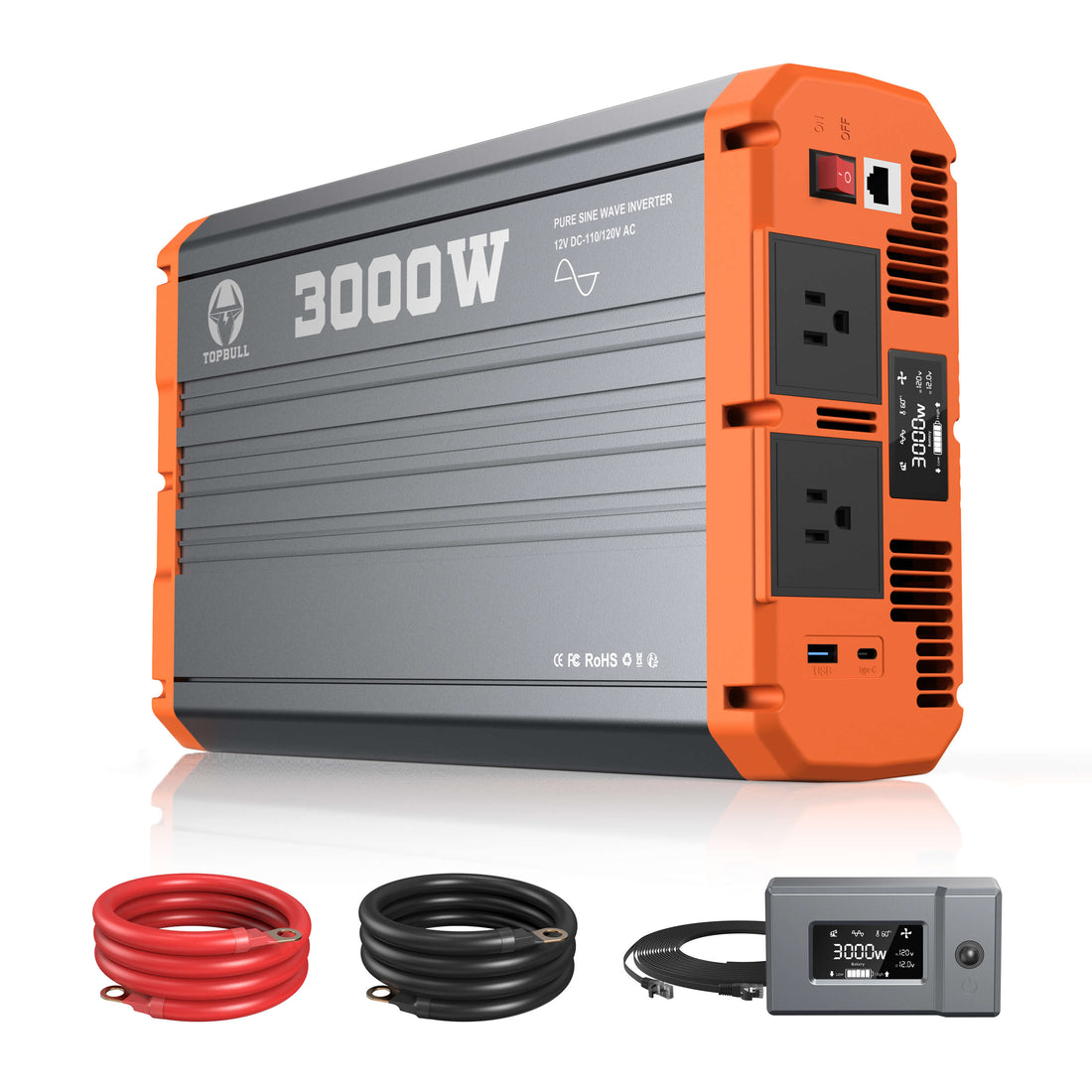Solar Power Inverters
Welcome to our solar inverter series, here is your place to buy high quality PV inverters, off-grid solar inverters.Topbull solar inverters are highly regarded in the market as a highly efficient green energy conversion solution due to their excellent conversion efficiency, outstanding stability, intelligent management features, and durable and reliable design.
Our carefully selected 12V solar inverters are compatible with all 12V battery backup systems, and all products have been rigorously tested for durability and performance. Find the best fit for your solar system with competitive pricing, expert guidance and fast shipping.
Shop solar inverters now and get 5% off your first order, don't miss out!
- Featured
- Best selling
- Alphabetically, A-Z
- Alphabetically, Z-A
- Price, low to high
- Price, high to low
- Date, old to new
- Date, new to old






















